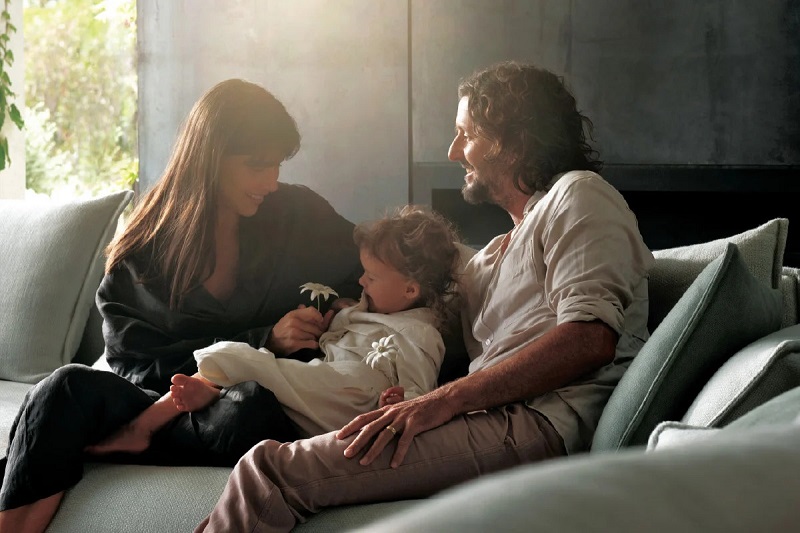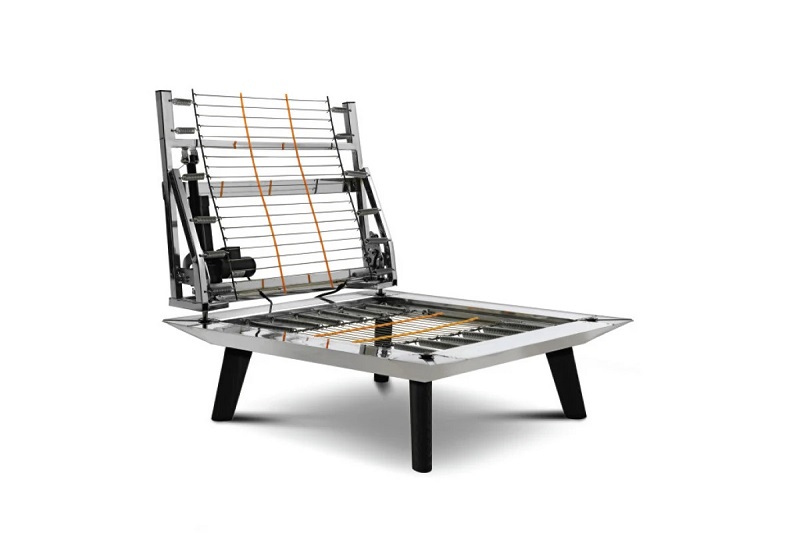
David King, founder behind the award-winning furniture company.
In 1977, David King was appalled by what he saw — furniture piled up for rubbish collection in front of suburban Sydney homes. He was compelled to solve this problem by designing furniture that is built to last a lifetime instead of having it end up in landfills. That’s how he came to establish the award-winning furniture company King Living.
King’s vision, which one can say was ahead of its time, is especially relevant to the market today, where sustainability is prioritised. Since King Living controls the entire production process of its furniture, it can ensure quality and sustainable outcomes, from design to delivery of the products, and even after-care services.
“In the early days, I would examine worn-out furniture that had been discarded at op-shops. This helped me identify where the design and material choices had gone wrong and where I could make changes,” says David King.
“King Living has been on a sustainability journey since day one. The entire design ethos and purpose of being has always been about creating sustainable and long-lasting furniture. Fast forward to today, a large part of the sustainability journey is about continually improving in every way possible and sharing our initiatives in a more consumer-facing way.”
Showing what King Living is doing in sustainability and being transparent about its approach is important to give both its team and customers pride in the values of the company, King adds.
Comfortable and sustainable furniture
King Living ensures that its furniture is well designed and sustainable in many ways. A key strategy is using steel frames, which are not only more flexible but also the reason that King Living furniture can last decades.
The steel frames are precision-engineered from high-grade galvanised steel and come with a 25-year warranty. For additional strength, the frame is spot welded at key stress and weight-bearing areas.
“The materials and design innovations built into King Living products offer immense value to our customers. While the environmental value is vital in a larger sense for our well-being and our planet, there are also individual benefits for our customers,” says King.
“Our sofa frames are made of steel, which is infinitely recyclable. It also delivers the comfort King Living is known for.”
The steel frames allow for the signature modular designs of King Living, which are another core feature of its furniture. Modular designs can reduce wasted space in transport containers because the products can be taken apart. Apart from the sustainability benefits, the feature adds to the appeal of the product.
“Our sofas, like Jasper, Delta or Zaza, are the designs that give the most modular options and benefits. These modular designs are made up of components that move and connect,” says King.
“This gives the customer the ability to change the configuration of the sofa, add extra seats or even swap the chaise from left to right. What this really means is the design can continue to be adapted to the customer’s lifestyle needs.”
Customers can replace parts of the furniture. For example, if one module of the sofa is stained, customers can choose to just recover that part instead of the whole sofa, thereby saving cost and materials.
This is related to another core feature of King Living furniture: removable covers. The furniture covers are easily replaced, which extends the life of the furniture. “On top of that, it will look and feel like a brand-new sofa, giving you the chance to give your home a fresh vibe,” says King.
“All upholstered designs have removable covers. This has the dual benefit of extending the life of the furniture. Being able to replace or recover modules and more readily access internal components, if it needs repairing, gives the furniture longevity.”
The company also offers King Care®, which ensures that the fabric and leather furniture maintain its looks, performance and value over the years. Customers can choose to protect the fabric with KingGuard+, a fabric safeguard designed to protect, preserve and extend the life of the furniture.
The non-toxic and water-based formula is available for sofas, beds, chairs, ottomans and cushions, and is exclusively available at King Living.
“As well as keeping your fabric sofa looking its best in the years to come, KingGuard+ is now officially helping you breathe easier, with approval from the Sensitive Choice programme by the National Asthma Council Australia,” says King.
This programme aims to help people with asthma and allergies make better lifestyle choices.
Care for furniture at its end-of-life
Apart from being built to last, King Living furniture has been designed so that even at its end-of-life, it does not end up in landfills. It is designed to be fully recyclable, so the steel, foam, non-woven fabrics and timber components can be repurposed and recycled.
Fabric wastage is minimised in the production process. The company tries to mindfully use as much fabric as possible in a single roll. Offcuts are donated to charities or initiatives, such as the Global Sisters and Reverse Garbage in Australia, to be repurposed. Additionally, recyclable cardboard boxes are used during the delivery process to reduce the need for plastic packaging.
More recently, King Living has started using fabric made from recycled plastic bottles in its collection. Its designers work closely with the production team to ensure that raw materials are optimised whenever possible. After all, waste has both an environmental and financial cost to the company.
If King Living furniture is damaged, the company is committed to repairing and refurbishing it.
“King Living is the only furniture company in the world to offer the type of refurbishment services that we do. We have a dedicated after-care team whose work is solely focused on helping our customers to care for, maintain and refurbish their furniture. We can actually strip a sofa right back to its steel frame and rebuild it from there,” says King.
“In Sydney, we partner with a supplier who separates each material in our sofas at their end-of-life to enable recycling, which is an initiative that we want to build in other regions and markets.”
Committed to sustainability
Everything comes at a cost. The high-quality designs and materials that King Living uses result in a higher upfront cost for consumers, who may be tempted by cheaper options. But investing in a good product that lasts longer could end up saving customers more in the long run.
“As a sustainability-led brand, we are advocates for quality products that give longevity. We aren’t trying to compete with brands that offer lower-priced, less sustainable options. It’s more about sharing information and educating customers on the benefits that come with a King Living design,” says King.
“We put a lot of effort into being transparent, both in our showrooms and online, and answering customers’ questions and concerns. The more information we give, the better position our customers are in to make an informed decision.”
King Living has showrooms in Australia, New Zealand, Canada, the UK, China, Singapore and Malaysia. It has two showrooms in Malaysia, in Bangsar and at IPC Shopping Centre in Mutiara Damansara.
King Living will continue to focus on its sustainability efforts. Two of its core objectives are to reduce its carbon footprint and reduce consumption in the marketplace.
“We are committed to helping create a circular economy, reducing consumption through our refurbishment programmes and continuing to partner with organisations that share our values,” says King.
For this to be successful, collaboration is needed. “We need both our stakeholders and consumers to come on the sustainability journey with us.”




